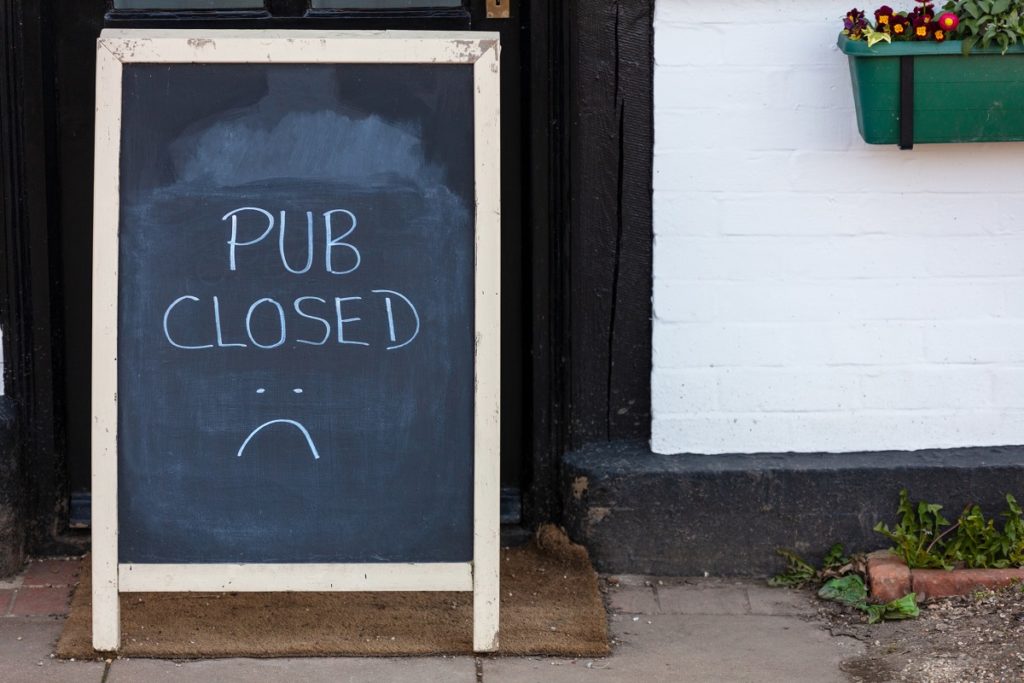Brits deserve a good summer holiday. The vaccine is rolling out, and a plan for reopening is here – summer can’t come soon enough. But visit any seaside town or historic city right now and you’ll find pubs’ taps dry, restaurants wondering if they’ll ever serve again, and hotels at death’s door.
Last week’s announcement confirmed our treasured watering holes, lunch spots, and staycation locations will stay closed until mid-May, and these vital industries need all the help they can get to survive until then. Some might be able to offer outdoor service in April, but the British weather cannot, and should not, be relied upon. If the Budget fails to deliver, it could be too late to save our hospitality industry come the summer months.
My Dad was a publican and growing up immersed in the trade showed me just how much these businesses matter to the people around them – they’re called the local for a reason. Pubs only really exist on these British Isles, they’re unique to our national culture and part of our proud heritage.
Up and down the country, the hard-working entrepreneurs that run pubs, cafes, and restaurants are the lifeblood of our communities – they create the places where generations can come together to socialise and celebrate and provide millions of jobs for local people. Working in this industry is not only a route back into work for those who lost jobs in the crisis, it provides life skills for young people who want to earn a bit of extra cash. The chancellor knows this – as a student, he did shifts as a curry house waiter himself.


The government’s coronavirus grants provide only temporary relief, and in far too many cases haven’t even been enough to keep business owners’ heads above water. Labour have backed extensions to the business rates exemptions and VAT cuts, which would mean a £13 billion tax package to rescue this struggling sector – even this is not enough. The seasonal nature of the industry could leave businesses once again struggling to pay off covid debts once the summer rush is over. Extending the reliefs into next year, at a value of £25.6 billion, is the only option in town.
As well as the savings, it would allow the industry to plan ahead. If they know their taxes will be lower next year, they can cut prices this summer. That’s what’s happening at leisure destinations across the UK – for example in Southend, where Adventure Island cut its ticket prices by 21 per cent and halved the cost of its £100 annual pass. The VAT cut might only be 5 per cent, but as with all tax cuts, the knock-on effects are huge. By extending the reliefs, holidaymakers and day-trippers are likely to get much better bang for their buck over the summer.
Brits will be itching for good value when they can finally get back to the pub for a summer beverage. The price of a pint will matter. Ending the current freeze on alcohol duty would cause carnage in the sector. People are getting used to having a drink at home with supermarket prices – landlords need a break to tempt the punters back.
Pubs and restaurants have bent over backwards, and spent a small fortune, to make themselves covid secure. When things reopen, they need to be making that money back – and higher taxes on alcohol won’t help. It’s simply not fair for politicians to demand new covid safety measures on the one hand, then take away the cash firms need to pay for them with the other.
Getting these firms moving again is vital, not just for them, but for everyone they employ. In December, 2.64 million people were claiming some form of unemployment benefits, and almost ten million were furloughed. Many of them work in hospitality and leisure and the budget has to offer them something.
They need a respite from tax rises. The chancellor must pledge that there will be no tax increases before April 2023 at the earliest. The sooner this pledge is made, the sooner businesses and households can benefit from the stability and certainty it will provide over the next two years. Something simple that can help with that would be a new lock on ‘fiscal drag’, to protect taxpayers from being pulled into higher tax bands. By moving the personal allowance in line with wage growth, taxpayers could save £29.79 in 2021-22, and £82.76 after that. Combined with the rescue for struggling sectors, these measures could offer millions of hard-working taxpayers the lifeline they need.
Reviving the economy won’t be an easy task, and we need to be bold. Taxpayer-friendly policies like slashing employer’s national insurance could help to retain those that have been furloughed and even hire extra staff to meet demand when 17 May rolls around. Replacing this jobs tax with a temporary payroll levy would cut the salary bill for a company with 50 employees by more than £70,000. That would be a game changer.
Hospitality needs all the help it can get in the Budget to cross the finish line in June when we fully unlock. If Chris Whitty is right, we may have to live in the shadow of coronavirus, and the restrictions that come with it, every winter. So let’s not take our favourite places for granted. The chancellor needs to protect our pubs, relieve our restaurants, and help our hotels now before it’s too late. I’ll drink to that.












